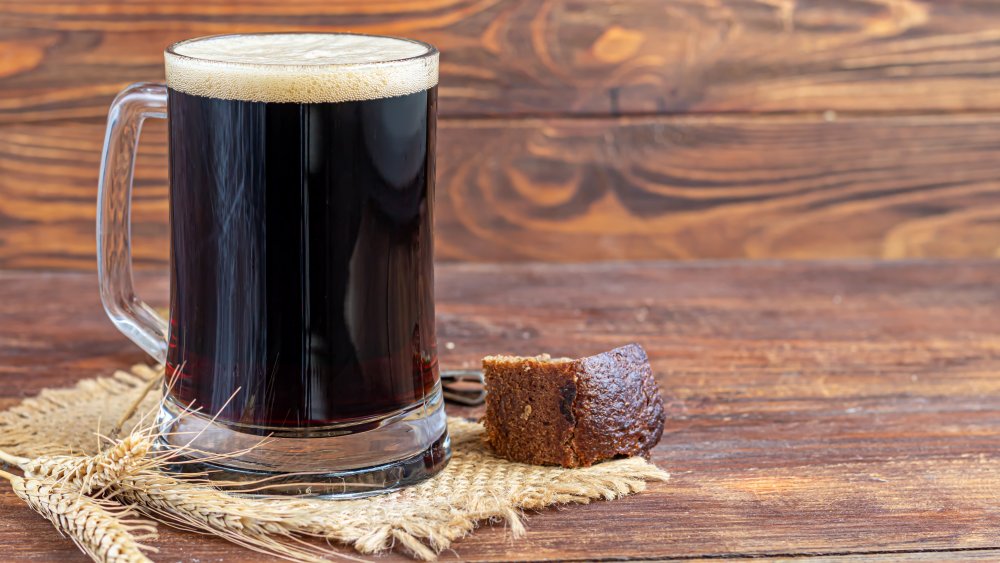The Real Difference Between Root Beer And Sarsaparilla
Sarsaparilla and root beer can both trace their origins to the early Americas, where Native Americans used the indigenous sarsaparilla and sassafras plants to create the distinctive beverages. Native Americans valued these plants for their nutritional value and medicinal qualities. Wild sarsaparilla roots can be boiled into a tonic or steeped into a tea to help treat ailments like stomach problems, respiratory issues, and coughs, according to Livestrong.
Sarsaparilla is made directly from the sarsaparilla vine and has a fairly bitter taste. Today, most modern manufacturers often include sweeter ingredients like licorice to cut the bitterness, according to Bundaberg. Traditionally, root beer was made using the roots of the sassafras tree. However, sassafras trees contain an essential oil that has a high concentration of safrole, which has been found to be a possible carcinogen and is poisonous in large doses. Sassafras roots were banned by the FDA in 1960 and are no longer used in modern root beers. Instead, the evergreen taste is commonly mimicked using other natural ingredients, like wintergreen and anise, as well as some artificial ingredients.
The beverages have been around for centuries
Early Spanish settlers brought sarsaparilla plants back to Europe in the 16th century, where sarsaparilla tonic was also used as a remedy for chronic diseases like rheumatism and syphilis, per The School of Natural Healing. The drinks soon became popular in Europe as well as the Americas. In fact, the name is derived from the Spanish word "zarzaparillia," which simply means "brambly vine," according to the AIHDP.
Beginning in the 1840s, American companies began bottling and selling their own root beer recipes in stores, adding ingredients like vanilla, licorice, clove, molasses, cinnamon, and honey to sweeten the unique herbal drink. In 1875, the entrepreneur Charles Elmer Hires became the first person to turn the concoction into a commercial brand. A teetotaler himself, Hires marketed the new "root beer" as a delicious alternative to alcoholic beverages, according to Bundaberg.
Today, the beverages are no longer touted for their medicinal properties, but root beer and sarsaparilla remain popular soft drinks in many parts of the world.

